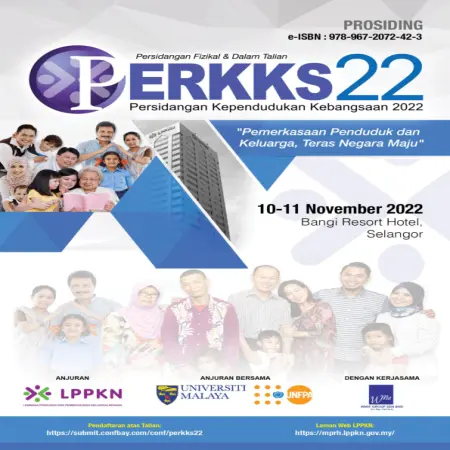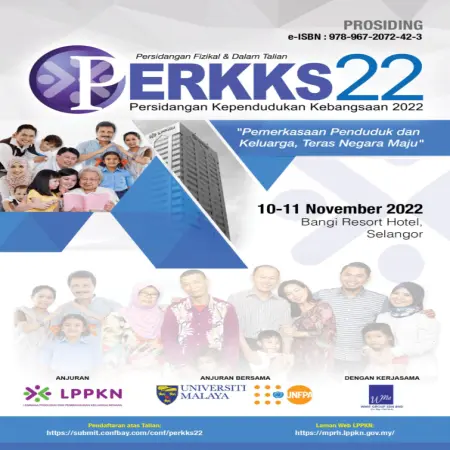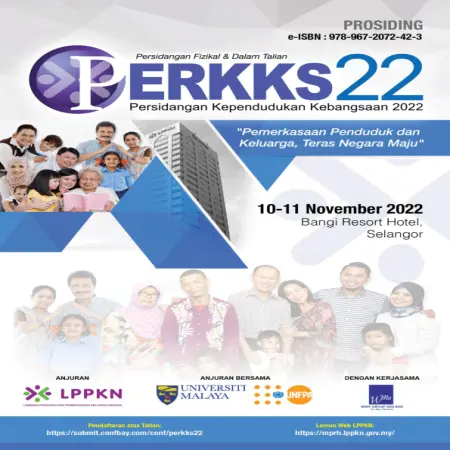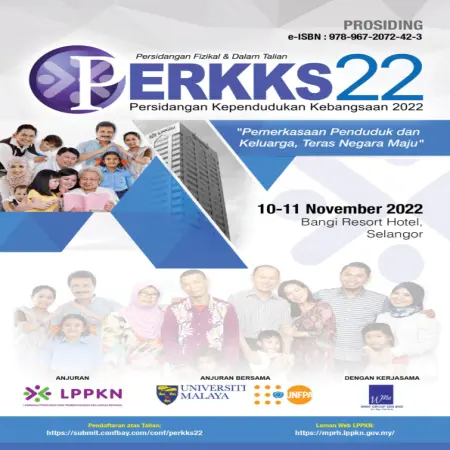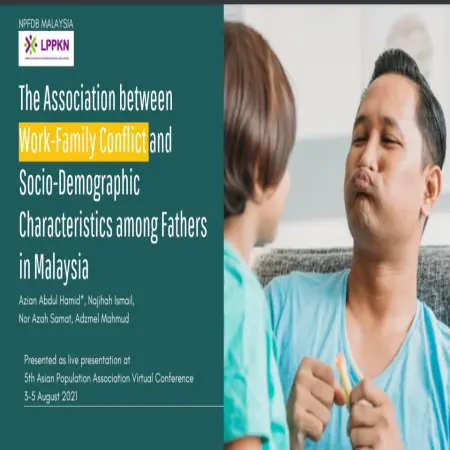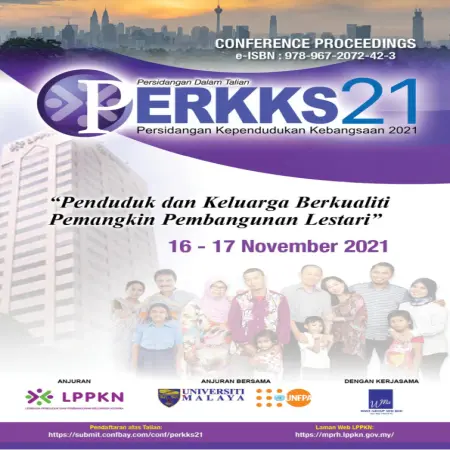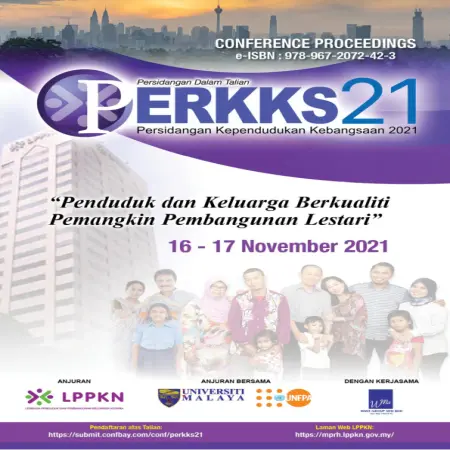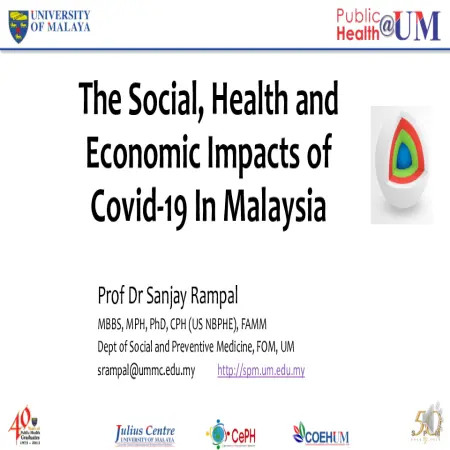Browse by Author
|
|
The 55th session of the Commission on Population and Development United Nations, New York, 25-29 April 2022
Item Type: Country Statement
Editor:
Year: 00/04/2022
Abstract: Malaysia’s socio-economic development has been significant in transforming our economy from a low income to an upper-middle-income status. We have achieved significant progress in eradicating poverty and narrowing inequalities. However, the COVID-19 crisis has resulted in vulnerable households falling into poverty and hardship.
|
|
|
|
|
|
The impact of ageing, population growth and fertility rate on economic growth: new evidence using dynamic heterogeneous panel
Item Type: Book Section
Editor:
Year: 00/00/2022
Abstract: Over the last century, a declining fertility and mortality rate have led to an ageing population. This trend was primarily found in Europe and North America prior to the past two decades, but it has since become widespread. Due to altered reproduction patterns and rising life expectancy, the ageing population will probably increase.
|
|
|
|
|
|
The socio-demographic factors affecting labour participation of older people in Malaysia: evidence from the fifth Malaysian population and family survey 2014 (MPFS-5)
Item Type: Book Section
Editor:
Year: 00/00/2022
Abstract: This study analyses the relationship between sociodemographic characteristics and labour participation among 4,059 older Malaysians (age 60+) using data from the Fifth Malaysian Population and Family Survey 2014 (MPFS-5). A binary logistic regression was used to identify the significant predictors of older Malaysians participating in the labour market after controlling for key demographic, health and socio-economic, geographical and intergenerational support variables.
|
|
|
|
|
|
The association between knowledge on sexual and reproductive health and attitude towards pornography among youth in the technical and vocational training (TVET) centres in Malaysia
Item Type: Book Section
Editor:
Year: 00/00/2022
Abstract: With technology advancement and increase accessibilities to gadgets, pornography exposure has been seen rampant among youth. Multiple studies have proven the negative effects of pornography exposure especially pertaining to risky sexual behaviours. This study aims to determine differences of SRH knowledge and pornography attitudes among youth subsequently investigate association between level of SRH knowledge and pornography attitudes among youth in TVET Centres in Malaysia.
|
|
|
|
|
|
Tahap kesejahteraan penduduk warga tua: kajian kes warga tua Bandar Baru Sungai Buloh
Item Type: Book Section
Editor:
Year: 00/00/2022
Abstract: By 2030, Malaysia is projected by the United Nations to reach the ageing country status with 15 percent of the country’s population aged 60 and above. This aging phenomenon is seen to cause a great impact and challenge to the development of the country. Approriate planning is needed to deal with this phenomenon and ensure the well-being of the elderly. This study was conducted to identify the elements of the well-being of the elderly and their level of well-being by making Bandar Baru Sungai Buloh as the study area.
|
|
|
|
|
|
The 54th session of the Commission on Population and Development: general debate on population, food security, nutrition and sustainable development
Item Type: Country Statement
Editor:
Year: 21/04/2021
Abstract: Malaysia’s population currently stands at 32,760,284 and is increasing at the rate of 0.6 percent per annum. Increased population increases food demand. Annually, Malaysia spends approximately USD8.33 billion (RM34.5 billion) on import of food supply, pointing to increased dependency food import purchases.
|
|
|
|
|
|
The association between work family conflict and social demographic characteristics among fathers in Malaysia
Item Type: Conference or Workshop Item
Editor:
Year: 00/00/2021
Abstract: Those living in urban, Indian, age 30-44 years, higher educational level, single father, and non Muslim’s tend to face Work Family Conflict than their counterparts. More hectic/busy environment and higher cost of living in urban area compared to the rural area may contribute to the Work Family Conflict among fathers.
|
|
|
|
|
|
The impact of aging and fertility rate on economic growth in Malaysia: new evidence using ARDL model
Item Type: Book Section
Editor:
Year: 00/00/2021
Abstract: Population aging and the health status of the community are the primary agenda in the achievement of the Sustainable Development Goals 2030 (SDG, 2030). However, current trends in the world have shown a rapid increase in the aging population rate, whereas the birth rate has shown a downward trend. Malaysia is no exception in this regard, which is expected to become an old country status by 2030 when the population aged 60 years and above reaches 15% of the total population.
|
|
|
|
|
|
Trends and variations in contraceptive use in Malaysia
Item Type: Book Section
Editor:
Year: 00/00/2021
Abstract: The contraceptive prevalence rate (CPR-the proportion of married women in the reproductive age group using any family planning method) in Malaysia CPR had stagnated since the mid-1980s when the government shifted its programme thrust from family planning to family development.
|
|
|
|
|
|
The social, health and economic impacts of Covid-19 in Malaysia
Item Type: Conference or Workshop Item
Editor:
Year: 00/00/2020
Abstract: Can life ever return to normal? YES... Evolutionary-wise, humans are resilient beings. This is not a life-ending Pandemic. With a prepared healthcare system with sufficient capacity. “March of the Vaccines”. Acknowledging our vulnerability demands humility, but will allow us to mitigate this pandemic better. Fear clouds our intellect. To make better-informed decisions, we need to let go of our fear.
|
|
|
|






